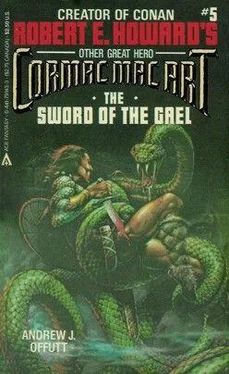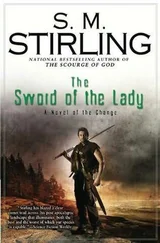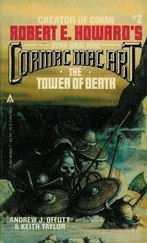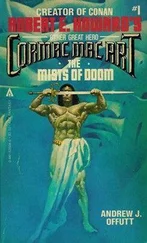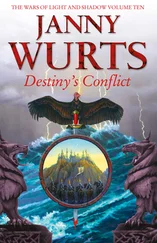Andrew Offutt - The Sword of the Gael
Здесь есть возможность читать онлайн «Andrew Offutt - The Sword of the Gael» весь текст электронной книги совершенно бесплатно (целиком полную версию без сокращений). В некоторых случаях можно слушать аудио, скачать через торрент в формате fb2 и присутствует краткое содержание. Жанр: Фэнтези, на английском языке. Описание произведения, (предисловие) а так же отзывы посетителей доступны на портале библиотеки ЛибКат.
- Название:The Sword of the Gael
- Автор:
- Жанр:
- Год:неизвестен
- ISBN:нет данных
- Рейтинг книги:3 / 5. Голосов: 1
-
Избранное:Добавить в избранное
- Отзывы:
-
Ваша оценка:
- 60
- 1
- 2
- 3
- 4
- 5
The Sword of the Gael: краткое содержание, описание и аннотация
Предлагаем к чтению аннотацию, описание, краткое содержание или предисловие (зависит от того, что написал сам автор книги «The Sword of the Gael»). Если вы не нашли необходимую информацию о книге — напишите в комментариях, мы постараемся отыскать её.
The Sword of the Gael — читать онлайн бесплатно полную книгу (весь текст) целиком
Ниже представлен текст книги, разбитый по страницам. Система сохранения места последней прочитанной страницы, позволяет с удобством читать онлайн бесплатно книгу «The Sword of the Gael», без необходимости каждый раз заново искать на чём Вы остановились. Поставьте закладку, и сможете в любой момент перейти на страницу, на которой закончили чтение.
Интервал:
Закладка:
With two soldiers from the Kilsheed garrison, Samaire, Ceann and Cormac were well-mounted. The two from Leinster hardly looked like prince and princess, but then neither did Senchann Eoghanacht. Samaire had spent much time with her hair, which was circled and woven with three bands of gold and silver-hair-jewelry formerly hidden within her peasantish clothing.
Senchann squared in his saddle. At his nod, the soldier who would lead the little group twitched his reins. The six horses set off along the road to Cashel.
Cormac rode beside the prince, with Ceann and Samaire just behind. The other solider rode last. As they walked, then trotted and cantered and then again walked their horses, Cormac gained information. He was careful, his questions seeming no more than normal curiosity.
There was no bad blood, he learned, betwixt Munster and its neighbours, Connacht and Leinster. Between those western and eastern kingdoms a small portion of Meath’s southern land bordered Munster, forming a corridor between the Shannon-with Connacht on its other bank-and Leinster. All was well, too, with Meath. Munster was at peace; Eirrin was, as Samaire had said, at peace.
As careful with his answers as Cormac was with his queries, Senchann allowed that the Munstermen heard that Feredach an-Dubh was no good king.
“There might be… a certain… nervousness in some quarters among us,” the prince said, “that Feredach might, ah, see the need to… mollify his people and make them forget their… dissatisfaction with him, if such exists.”
Cormac watched the flower-tasting of a bright yellow butterfly. He’s learned to talk like a king. It’s “if’ and “maybe” and “perhaps” and “might be” and “some quarters among us, “ and even those not without further modification. He said, “Oh… by seeking an enemy, you mean, to give the Leinstermen some common purpose, someone to rage against?”
“You understand considerable, Cormac mac Othna.”
To that Cormac made no reply. Aye, he knew the way of kings. There was nothing new about a king, finding himself in trouble at home, looking about for some excuse to make war and thus unite his people-and appease them with sword-won booty.
“Lord Feredach, then,” Cormac said, “is not the man his father was.”
“Ah no! That man was well-known and well-liked by the crowned head of Munster. For the matter of that, it’s good His Majesty Eogan felt about Feredach’s older brother Liadh’s being on the Leinsterish throne.”
“Is’t true King Feredach had his brother Liadh slain, Lord Prince? Or is that not a question to ask of a king’s son?”
“It is not a question to ask of a king’s son,” Senchann said tightly. “But I will tell you this-who knows?
“I’ve heard naught of Feredach’s younger brother and sister, since his ascension.”
Senchann mac Eogain shrugged. “People in other lands hear little of me either, I suppose, or my brothers and sisters!”
Cormac chuckled. “They’ll be hearing of you, Lord Prince-a king’s son who goes about in a plain brown robe, and hooded, with a smallharp and no horse!
“It is a way to learn… things,” Senchann said, with a little smile. “Ah-now this section of road I well remember as a good one. Rossa!” he called to the soldier ahead. “Let’s let them run, until we come to Brown Dog Hill!”
The soldier turned back a grinning face, and booted his mount. So too did Senchann, and then Cormac. The latter rode with his teeth clenched and an expression of some pain on his face. He tried very hard to relax and roll with the horse’s gait as one did on a ship asea. He’d spent very little time atop a horse, and much preferred the unsteady planking of a ship beneath his feet than hard leather saddle under his hams and a horse’s broad frame tugging at his thighs. The hill, named long and long ago for a reason no one remembered, came near not soon enough for Cormac mac Art.
They slowed, paced their restless mounts up the long incline. As they began the easier descent, Cormac started to speak, but then they broke into a trot.
Again he clenched his teeth to keep them from clacking and against his grunts; this trotting was worse by far than the gallop, which was relatively smooth-by comparison. Men yet wondered and strove to learn whether it was true all four of a horse’s feet left the ground when he galloped; there was no way to be certain, but wagers and arguments were still made. As to the trot-to Cormac that gait felt as if the beast he rode was dancing on one foot. He gripped tightly with his thighs, and was happy when they reached the base of the hill, where the road both leveled and grew as full of curves as a cow’s pathway.
The prince’s words had assured Cormac that it were safe for Ceann and Samaire to make known their identity to King Eogain. Cormac felt it politic to advise the prince in advance of their identities, rather than letting him learn in his father’s keep. He waited until they stopped, just after crossing a stream, and made a midday meal of bread and cold meat. Then, quietly, he asked Senchann to find duties elsewhere for the two weapon-men. With a look, Senchann did.
“There is nether bad blood nor high friendship between the kings of Munster and Leinster,” Cormac said, looking at Ceann and Samaire. “King Eogain held regard for both King Liadh and his father.”
Ceann nodded. “Then we might tell the prince and his father the reason for our journey northward.”
With. narrowed eyes, Senchann looked from one of them to the other, then opened his mouth to speak-or demand, morelike.
“Lord Prince, as we are wary of all men, we three have been less than honest with you,” Cormac said, gazing into Senchann’s eyes. “Lord Prince Senchann of Munster, I present the Lord and Lady Ceann and Samaire, prince and princess of Leinster.”
“We hope you understand the reason for our deception, my lord,” Samaire. said, while Senchann sought to grasp again the loosed reins of his mind.
After a time he said, “My Lady… I do not.”
So they told him, and Senchann’s jaw tightened. In coming to the end of their tale of dark treachery and captivity and then bloody rescue, Ceann and Samaire identified Cormac only as “Cormac mac Othna, and him of far Ulahd.”
At last there was silence but for insect-buzz and bird-song and the nearby gurgle and ripple of the little stream they had just crossed. After a time of thought, Senchann heaved a great sigh.
“It is an ugly tale. A man does treachery on his brother to gain a throne not rightfully his-and then on his younger siblings as well, to keep the throne he sits… less than regally.”
“Less than competently!” Ceann snapped.
“I thank you for your confidence,” Senchann mac Eogain said, “and suggest that it be yourselves and not I who tell this ugly story to my royal father.”
Of course; they had assumed nothing other.
“Then if we’ve finished here,” Senchann said, “let us tear the horses away from their grazing, to be certain we raise fair Cashel before dark.”
They did, but only just. The rearing little mountain called the Rock of Cashel hove into sight well before the city itself, and the sun was already dying. It was reddening the land with dusk when they reached the gates of the city at the base of the skeletal hill. Atop it, they saw that the adherents of the new faith had been allowed to raise a chapel. Before it, huge and out of cut stone, stood the symbol of their faith.
Cormac was not happy to enter a city watched over by a Roman execution device; that mighty cross was to him a somber and most ugly sentinel. Many men the Romans had bound to such horrors, to die of thirst and hunger and exposure. Nor had there been many such as that first Caesar, nearly six centuries ago. He had gained a reputation for mercy by ordering his men to slay with swift swords and spears the slowly dying men they had crucified. (Most likely, Cormac thought, because their groans went not well with Julius’s dinner!)
Читать дальшеИнтервал:
Закладка:
Похожие книги на «The Sword of the Gael»
Представляем Вашему вниманию похожие книги на «The Sword of the Gael» списком для выбора. Мы отобрали схожую по названию и смыслу литературу в надежде предоставить читателям больше вариантов отыскать новые, интересные, ещё непрочитанные произведения.
Обсуждение, отзывы о книге «The Sword of the Gael» и просто собственные мнения читателей. Оставьте ваши комментарии, напишите, что Вы думаете о произведении, его смысле или главных героях. Укажите что конкретно понравилось, а что нет, и почему Вы так считаете.
